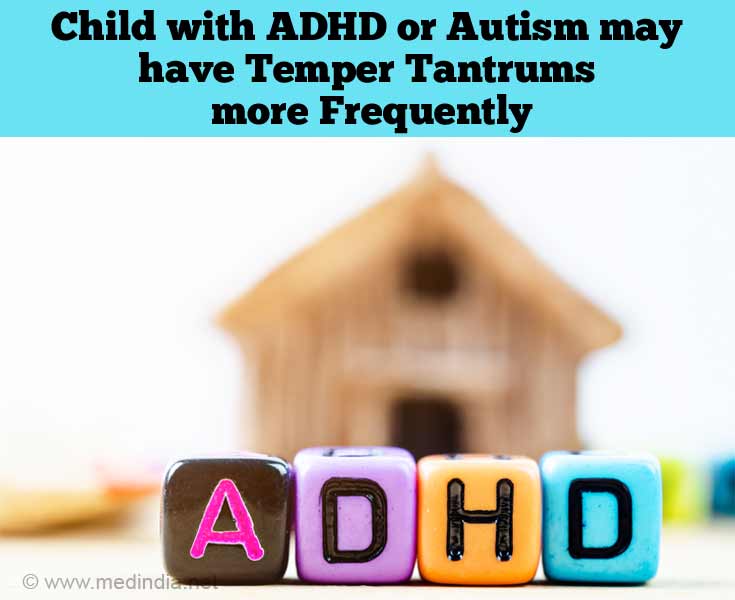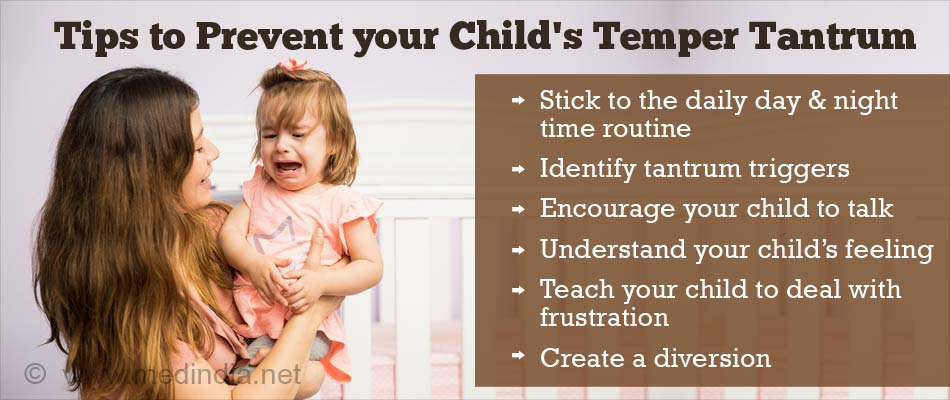- Stanford Childrens Health- Temper Tantrums - (http://www.stanfordchildrens.org/en/topic/default?id=temper-tantrums-90-p02295)
- Mayo Clinic- Infant and toddler Health - (https://www.mayoclinic.org/healthy-lifestyle/infant-and-toddler-health/in-depth/tantrum/art-20047845)
- University of Rochester Medical Center- Temper Tantrums - (https://www.urmc.rochester.edu/encyclopedia/content.aspx?contenttypeid=90&contentid=p02295)
- The Australian Parenting Website- Tantrums: why they happen and how to respond - (http://raisingchildren.net.au/articles/temper_tantrums.html)
- Kids Health- Temper tantrums - (https://kidshealth.org/en/parents/tantrums.html)
What is Temper Tantrum?
Temper tantrum is a sudden uncontrolled outburst of rage and frustration. It occurs mostly in a young child or those who cannot control their emotions or cannot express their needs. Apart from children temper tantrums are also seen in adolescent kids and very old people with debilitating health conditions. This emotional outburst occurs in response to unfulfilled desires or needs.
Temper tantrum is a child’s way of venting out emotions before they learn to do so in a socially accepted manner. These fits of screaming, kicking, stomping, holding the breath, breaking things or throwing themselves to the ground are a normal passing phase of childhood development. Temper tantrums usually continue till the age of four and lessen as the child learns to communicate his or her needs. This attention seeking behavior in children aged two to three years are also known as the terrible twos and threes. These toddler tantrums are found equally in boys and girls.
Why do Kids Throw Tantrums?
Temper tantrum is childrens’ way of showing they are upset or frustrated. Tantrums are common during the first few years of life, when the language skills are just starting to develop and the child is just beginning to speak. As they cannot express what they want or feel, the frustration within them may be expressed as a tantrum. Temper tantrums are most when a child is hungry, sleepy, tired, sick or uncomfortable. As they grow older and communication skills improve the tantrums tend to decline.
Kids may throw tantrums when they have a toy or something they like, taken away from them or when they are placed in play schools or day care away from home. If kids can’t get something they want such as a toy or some sweets or if they cannot get their parents to do what they want, they may express their dissatisfaction by throwing a tantrum. Many times throwing a tantrum may be a way of seeking attention or letting others know that the child is worried or upset. Also, if a child sees parents quarreling constantly at home it may make the child express emotional distress by throwing temper tantrums.
If your child has Attention Deficit Hyperactive Disorder (ADHD) or Autism Spectrum Disorder (ASD) they might have more frequent or severe tantrums because they are unable to communicate their needs or make themselves understood.

How do you Treat Temper Tantrums?
- Stay calm. It is important to keep your cool when responding to a tantrum. You need to be calm to be able to help your child calm down. Avoid complicating the problem further with your own frustration or anger.
- Distract your child’s attention. If your child insists on doing something that is forbidden move onto another activity or take the child outside to distract attention.
- Do not spank your child. It may result in more stubbornness and negative behavior. Also it sends a wrong message that using physical punishment is acceptable.
- Do not give in to your child's tantrum. This will only prove to your child that the tantrum was effective and push the child to try it more often. Also, kids may be especially vulnerable after a tantrum when they realize that they have behaved badly. Later when your child is calmer, hug and reassure your child that you love your baby in spite of the tantrums.
- Do not bribe your child with a reward to stop the tantrum. Many times parents resort to giving the child toys or sweets to stop them from behaving badly. The child then learns to deliberately act inappropriately in order to get a reward.
- Children who get violent or are in danger of hurting themselves or others during a tantrum should be taken to a quiet, safe place to calm down. Also, potentially dangerous objects should be removed from them and the vicinity.
- Use a time out. If your child repeats a forbidden behavior ask your child to stay in the room for a specific time limit until they regain control.
How to Prevent Temper Tantrum?
- Stick to a daily routine: Plan a daily routine for bed time, nap time, lunch, dinner so that your child knows what to expect. Stick to the routine consistently.
- Identify tantrum triggers: If your child has tantrums when you are shopping, it might help if you go shopping after your child has had a snack or a nap. If your child has tantrums on visiting a particular shop it would be advisable to avoid going to that shop.
- Be aware of your child’s feelings: If you can sense what things are likely to bring on a tantrum in your child, you can talk about them and help your child manage his/her feelings.
- Encourage your child to talk: Children understand a lot more words than they are able to express. When kids are unable to express their wants or feelings, encourage them to put their feelings into words or sign language so that you can understand them better.
- Reduce stress: Tired, hungry, over excitable children or those in unhappy families are more likely to experience tantrums.
- Plan in advance: You can talk to your child about the activities in advance to prepare for the event. You can also pack a small toy or snack to occupy your child in case of delay.
- Encourage your child to make choices: It gives the child a sense of participation and control in activities concerning him/her. Offering choices such as “Would you like to wear your white shirt or your blue shirt?" or "Would you like to eat apples or bananas?" will help your child in learning to make choices.
- Distract your child: You can offer your child something else in place of what they can't have or take your child to a different place to prevent a tantrum.
- Keep forbidden objects out of sight and out of reach: If you do not wish your precious china vase to be broken, keep it in a place where your child cannot see or reach it.







